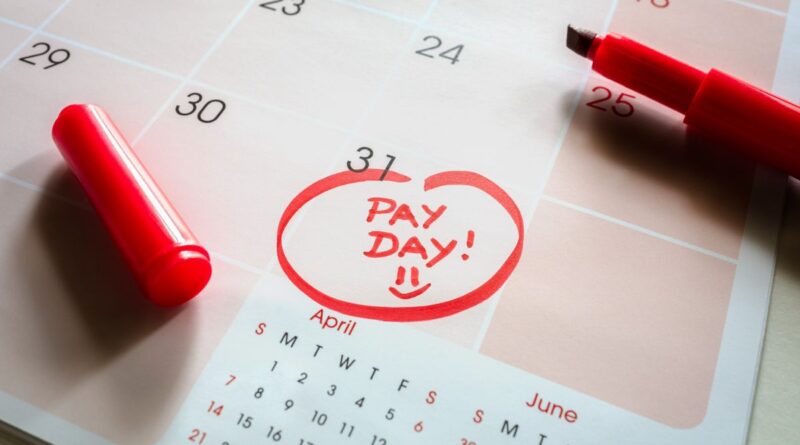If you are facing a difficult financial time, there will be months when you receive your salary and a little earlier will provide a much needed break. The good news is, there are many ways to make this happen – although they are all created equal.
One way is the development of online payments, which “an increasing number of Americans need money before their next payday,” he said. New York Times. But these advances come at a cost. Another option is direct deposit first; if you have a bank account at the issuing institution, this option “allows you to be paid up to two days early – or in some cases, even earlier, depending on the type of deposit,” it said. . Experian. Furthermore, there are no fees involved.
What is the first direct deposit?
A direct deposit “gives customers of a bank or credit union the ability to receive their paychecks before their payday,” it said. Yahoo Finance. This can happen when the automated clearing house (ACH) network is used to make payments through what is known as direct deposit.
Subscribe to A week
Escape your echo chamber. Get the facts on the issues, as well as the analysis of different opinions.
SUBSCRIBE & SAVE
Sign up for the Free Weekly Newsletter
From our morning news chat to our weekly Good News Newsletter, get the best of the Week delivered straight to your inbox.
From our morning news chat to our weekly Good News Newsletter, get the best of the Week delivered straight to your inbox.
Usually, there is a waiting period for the money to clear between when your employer processes the paycheck and sends the direct deposit to the bank. But with direct deposit first, the bank “skips the normal wait time for the money to clear,” said Scott Lieberman, founder of TouchdownMoney.com, in US News & World Report.
This means you’ll get your money sooner – often two days sooner than you otherwise would have. For example, said US News & World Report, “if you get paid twice a month, like the 15th and 30th, then you can start paying bills and getting interest on the 13th and 28th of each month.”
How is it different from online salary development?
While early direct deposit gives you access to income sooner, “early pay tools allow employees to receive a portion of their wages early, then pay that amount on their next payday.” to pay,” said the Times. Sometimes this option can be found “through companies that partner with their employers, such as Payactiv, or directly from many financial services such as Dave and EarnIn.” On the other hand, the first direct deposit is offered by certain banks.
Another important difference between direct deposit and online payday advances is cost. Although “some services may offer advances without charge,” it is often the case that “advancements are free as long as the employee agrees to wait a few days for the money,” said the Times. In other words, if they “want funds immediately – which they usually do – they have to pay a fee for ‘instant’ access.”
Another income that prepaid apps can generate is fees called “tips.” Optionally, however, “utilities can be aggressive in their demands, such as including default charges,” with a tip totaling about $4, the Times said.
There is also the risk of overdraft fees with online salary advances if “the employee’s next salary is lower than expected – say, the employee was scheduled for several hours – or if it arrives later than expected,” which causes their account to lack enough funds “to cover the removal of the app.”
Because you are not actually borrowing money with the first direct deposit, this will not be a risk with that option. However, of course, if your deposit is delayed for any reason and the balance exceeds your account balance, you may still face fees.
Where can you get the first deposit?
While online payday advances are available through companies and apps, you can get your first deposit directly from the bank where you have your checking account. A few banks already offer this service, and “many banks do,” although “your bank may have specific requirements for who qualifies.” to get the first deposit,” said Yahoo Finance.
At the time of writing, some examples of banks that offer early direct deposit include:
- Ally Bank
- Capital One
- Chase
- Fifth Third Bank
- Huntington Bank
- KeyBank
- PenFed Credit Union
- Wells Fargo
